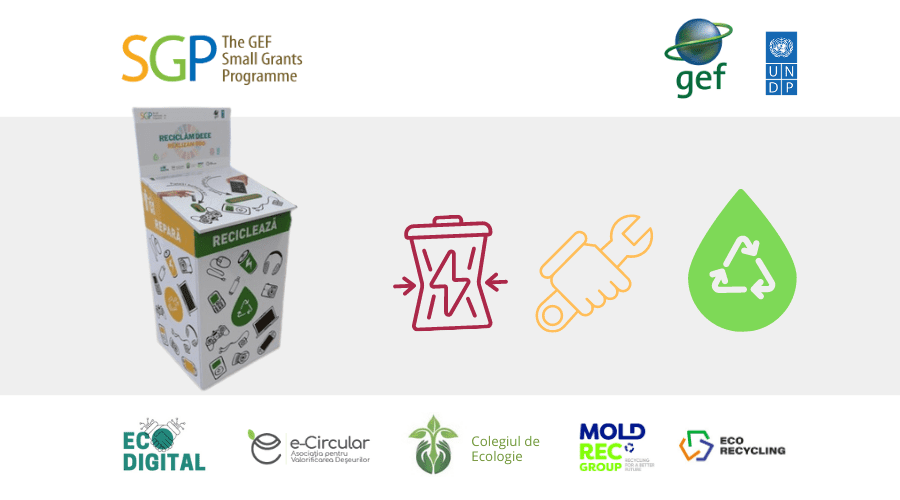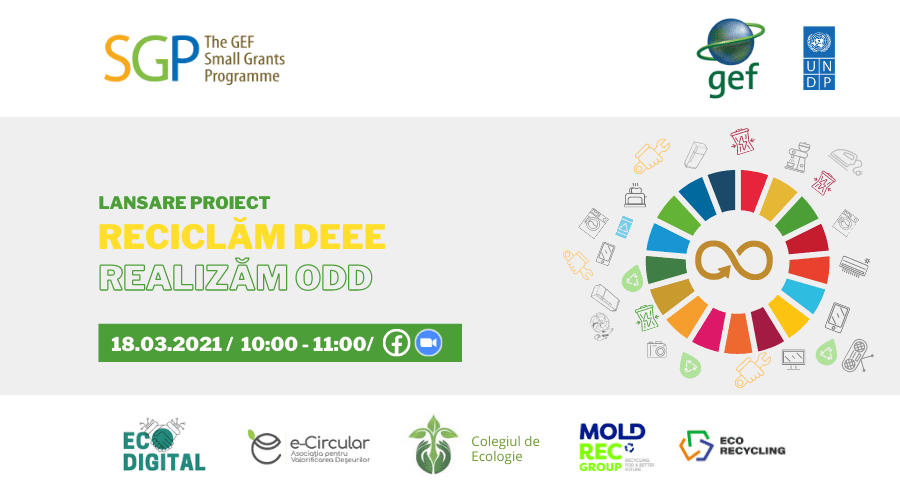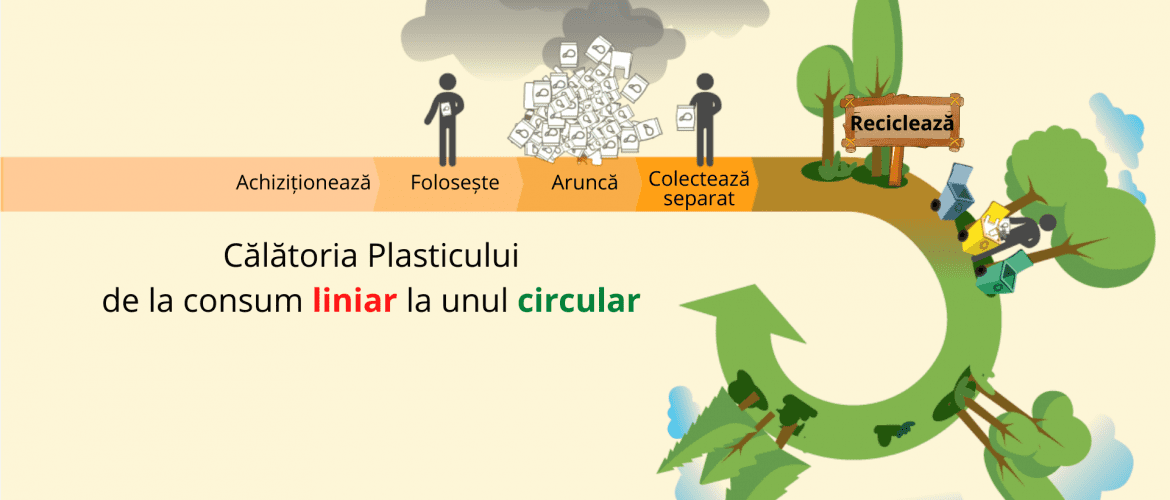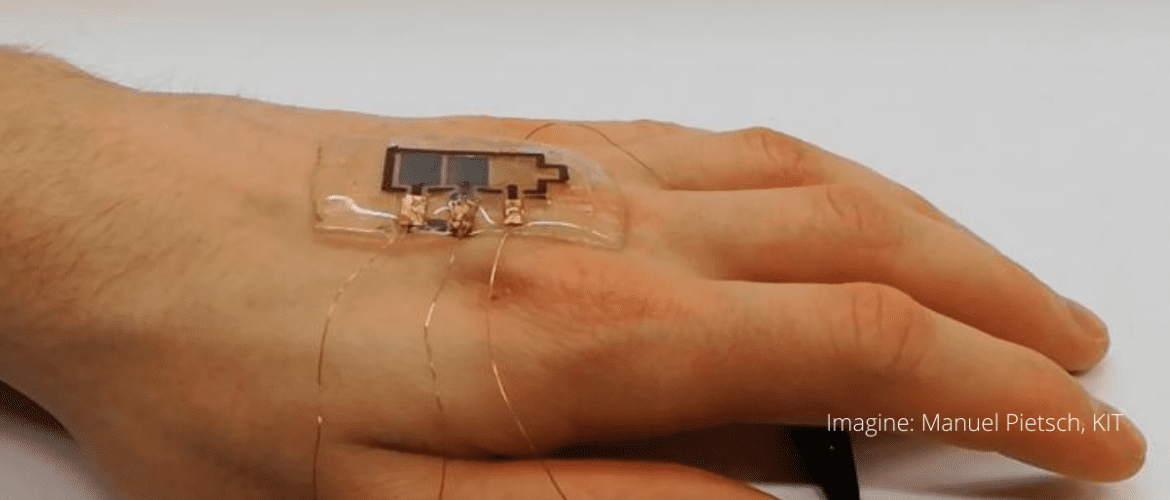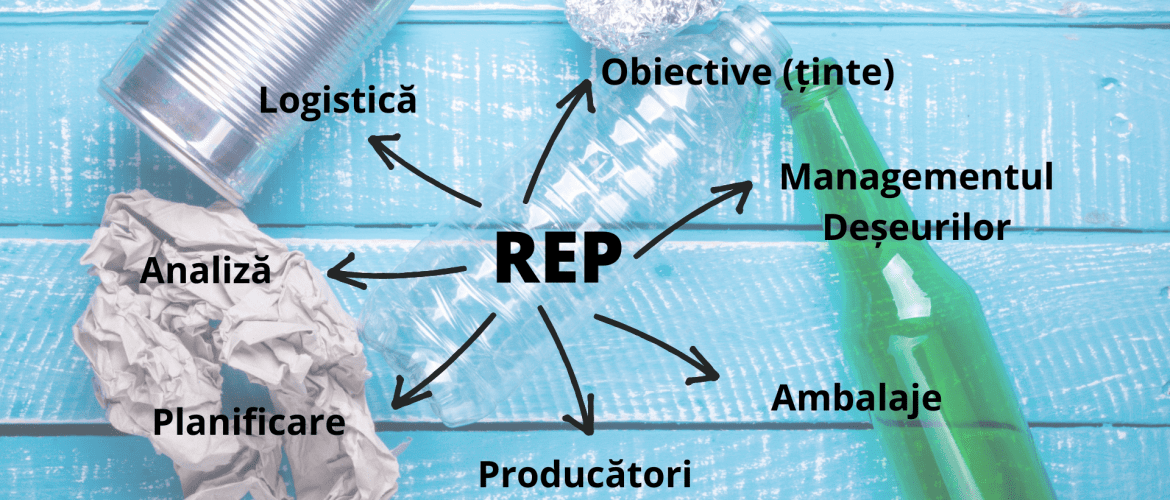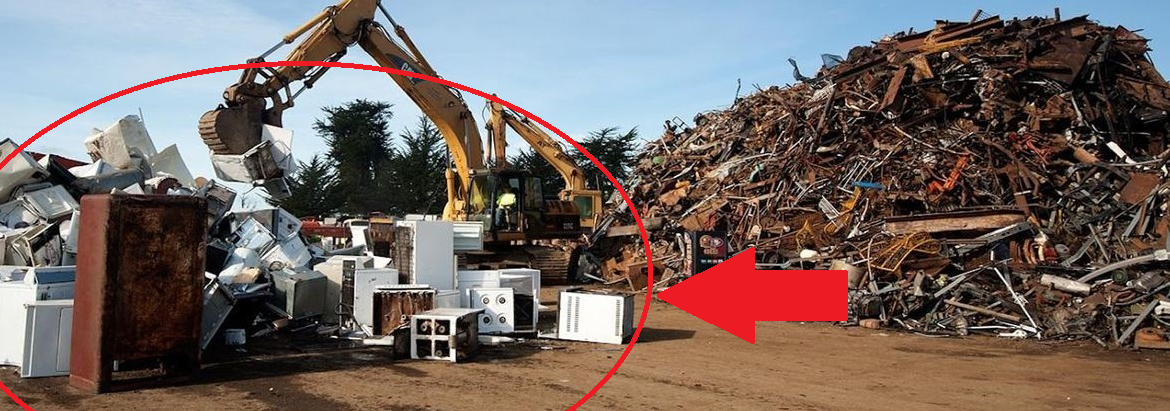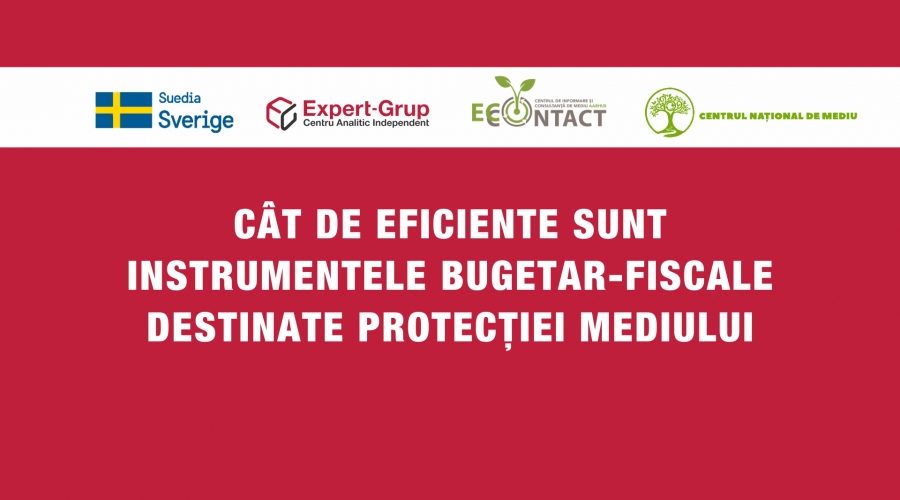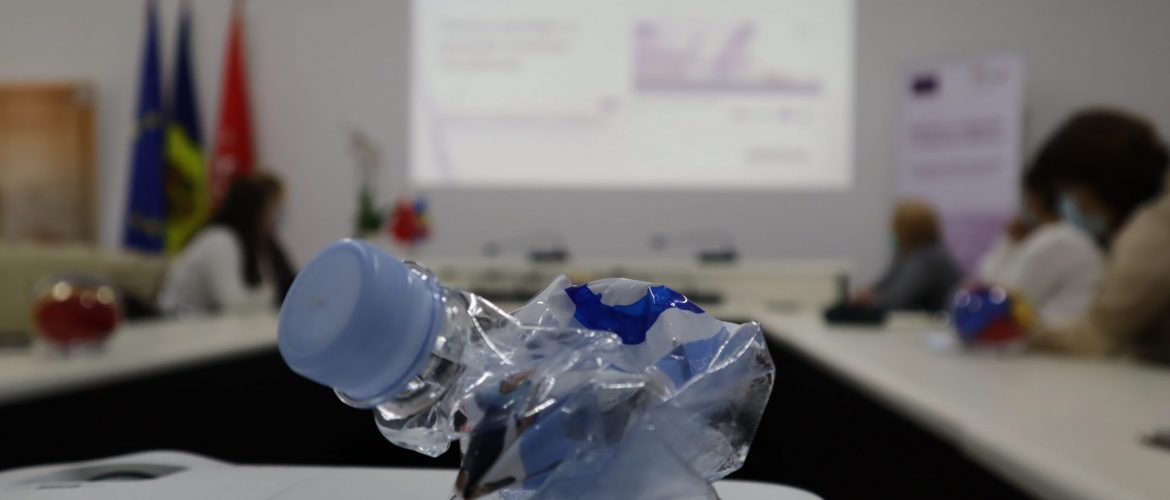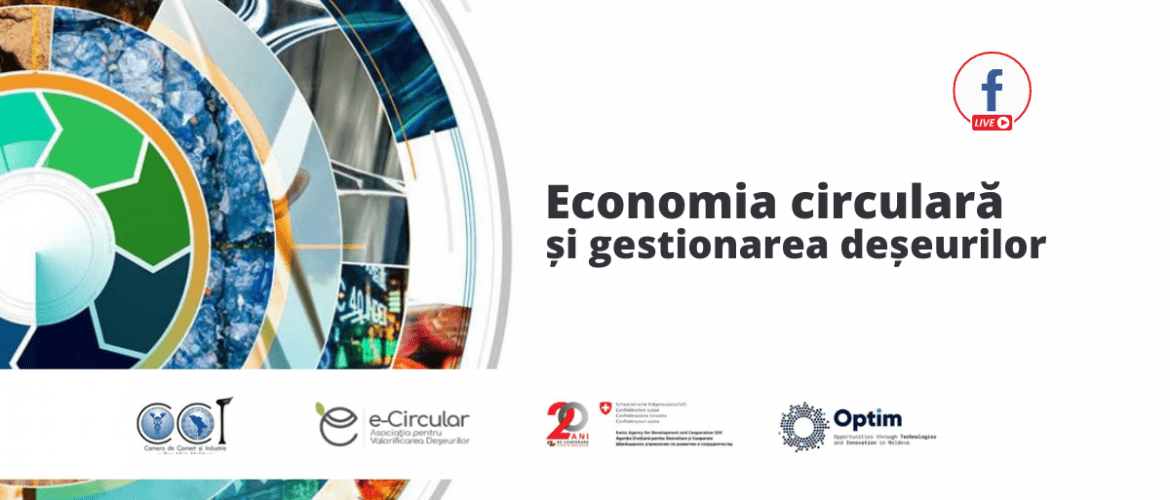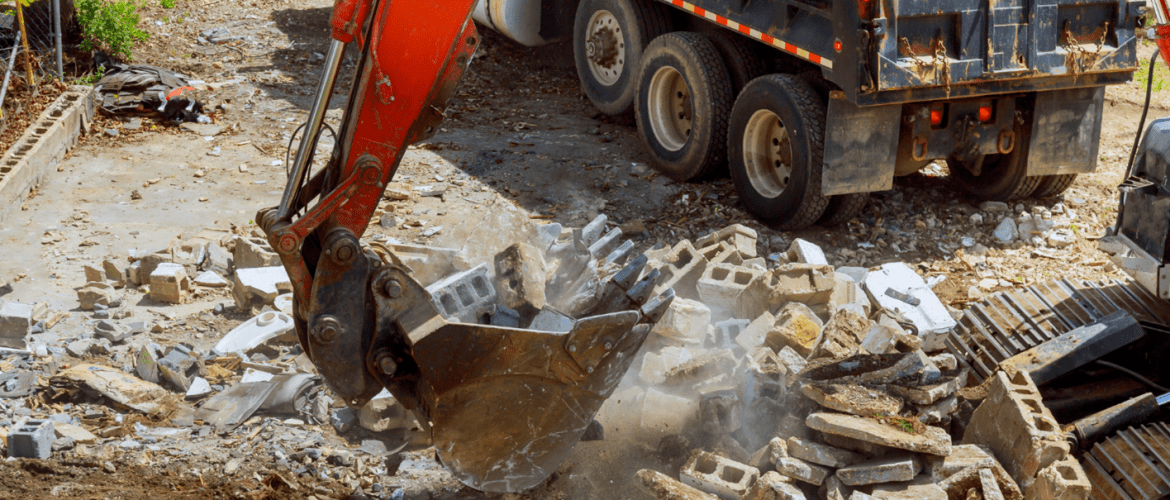number electrical and electronic equipment waste collection points will increase from 128 to 200, thanks to a new project dedicated to e-Waste management, which was launched today, March 18, 2021, on Global Recycling Day. The points will be set up in Chisinau and other localities in the country. The "We recycle e-Waste, we achieve the Sustainable Development Goals" project is implemented by AO EcoDigital with the financial support of the GEF Small Grants Program, implemented by UNDP Moldova, in partnership with AO Association for
"We recycle WEEE and achieve the SDGs" is a new project dedicated to the management of electrical and electronic equipment waste at the national level and the achievement of the Sustainable Development Goals, implemented by AO EcoDigital with financial support from the funds of the "GEF Small Grants Program, implemented by UNDP Moldova" in partnership with the AO Association for Valorification Waste (AVD), the College of Ecology, MoldRec and EcoRecycling. The project was designed as a continuation of the "Clean city with recycled e-Waste" project, implemented in the period 2018-2020 by AO AVD through
What is PLASTIC? "Plastic" is an umbrella term that encompasses a wide range of materials made from semi-synthetic or synthetic organic compounds. The International Union of Pure and Applied Chemistry (IUPAC) defines plastics as "polymeric materials that may contain other substances to improve performance and/or reduce cost". These highly malleable materials can be molded into solid objects of a multitude of shapes and sizes. Plastic is made from oil, petrol, natural gas and coal (non-renewable resources). The
In the coming years, the increasing use of electronic devices in consumables and new Internet of Things (IoT) technologies will increase the amount of e-waste. To save resources and minimize waste volumes, greener production and a more sustainable life cycle will be needed. Scientists from Karlsruhe Institute of Technology (KIT) were the first to produce displays (screens), the biodegradability of which was verified and certified
Most recently, in July of this year, the Regulation on packaging and packaging waste was approved by Government Decision no. 561 of 31.07.2020 and which will enter into force in August 2021. In accordance with the provisions of this Regulation, producers of packaging waste of various types, regardless of how (individually or collectively) will be responsible for organizing the process of proper waste management generated, and starting in 2023, they will also be responsible for reaching premiums
Research undertaken by UNITAR in a report commissioned by the WEEE Forum in 2020 estimates that in 2018 in the EU approximately 2.1 kg /WEEE/per person is in scrap metal and is not declared as WEEE. Data on WEEE in scrap for the Republic of Moldova are unavailable, definitively missing, and for the EU are few or uncertain. Thus only a few reports and studies identified by the WEEE forum can be found (WEEE Forum) in the report
The price of comfortable living in the 21st century is the damage that human activity brings to the environment. The impact of people and economic agents on the environment becomes, every year, more and more noticeable and impossible to ignore, and many of the developed countries have put this issue on the list of national priorities. "Moldova is facing a double development problem. On the one hand, we have a weak economy with an insufficient level of industrialization. On the other hand, there are major pressures on the environment, caused by
Only a community informed and aware of the danger of PLASTIC pollution makes possible and determines the success of a project and the continuity of the actions carried out. Quoting Robert Swan, "The greatest threat to our planet is the belief that someone else will save it..." it is very important now more than ever to act immediately and be responsible for the products we consume, the waste we generate, which if continue to be mismanaged are valuable wasted resources. In this sense, one of the basic activities
Today, on the platform of the Committees for Sectoral Entrepreneurship of the CCI of the Republic of Moldova, the Association for Waste Recovery at the invitation of the Chamber of Commerce and Industry continued the dialogue on the dimension of efficient waste management, this time with the generic "The transition towards a circular economy in the Republic of Moldova". CCI members – producers who participated in the online event, were informed about the concept of circular economy – as a model of production and consumption involving the sharing, reuse, repair, renovation and recycling of materials and products
Construction and demolition waste (DCD) = waste resulting from construction, renovation, rehabilitation, repair, consolidation, demolition of civil constructions, industrial constructions, building structures, transport infrastructure as well as dredging and unclogging activities , including soil excavated from contaminated sites. They are generated through a discontinuous process and their composition is very heterogeneous, containing remnants of construction materials, chemical products and other auxiliary materials. Aroape 80% from the amount of debris generated results from construction

